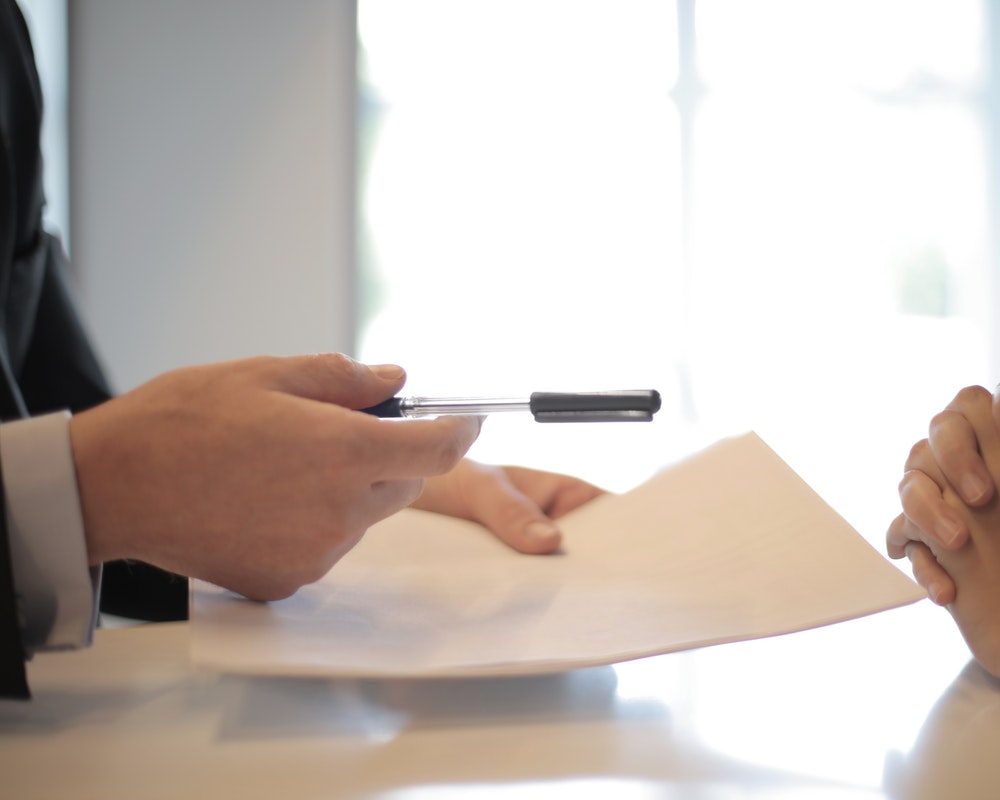Did you know that motorcyclists are 27 more times more likely to die than drivers or passengers in a car? That’s because they have little protection. They only have their helmet and whatever clothing they have to protect them from impact.
That’s why getting yourself involved in a motorcycle accident can be fatal. Even if you’re only a pedestrian who got hit by one, you can still sustain serious injuries. It can be worse for you in this case as you won’t be wearing any helmet.
If you do find yourself in a motorcycle accident, remember the tips below.
-
Page Contents
Accept Medical Care
First, accept any medical care from the response team. Whether it’s cleaning a wound or transporting you to the nearest hospital. In some cases where no one involved has even a scratch, though, you might be able to choose not to go to the hospital.
However, this doesn’t mean that you don’t need medical attention. Keep in mind that adrenaline can mask pain. If you’re involved in a motorcycle accident, chances are you have a lot of both.
Some injuries are internal, too, so you might not even notice you have some (partly because of the adrenaline). A common injury that presents no obvious evidence is traumatic brain injury (TBI).
It’s common not only in motorcycle accidents but in any vehicular accident. It can take hours or even days before you notice something’s wrong, and sometimes, it can be too late.
Broken ribs and internal bleeding are other examples of injuries that aren’t visible. These are dangerous, as well.
The main purpose of getting yourself checked is to make sure you’re safe. It has the added benefit of having a medical record to present as evidence, though. You need it when you want to seek compensation for the damage from the other party or your insurance.
Doing it right away can remove the angle that you got those injuries from another accident. Believe it or not, is a move that the other party or insurance companies try to pull. If you refuse medical attention, they may use it to say you didn’t have threatening injuries at that time.
-
Collect Information from Everyone
If you can, try to collect information from everyone involved, even the witnesses. Law enforcement will do this when they arrive, but it’s handy having this information for your use. After all, you can’t be too sure that the police won’t make errors.
The first thing to record would be the plate numbers of the vehicles involved. Some might try to flee the scene, especially if they know they caused the accident. Take note of the make, model, and year of the motorcycle or any other vehicle in the scene.
Collect the names and any contact information of all parties involved in the accident, those who’ve stopped to help, and even the bystanders. You should also get the insurance information of the driver(s) and their license number.
Likewise, you should give yours, as well. What you should not do is converse with other people.
It can take a while before you can fully process the accident. It can make you susceptible to saying something you don’t mean.
You may say something that won’t help your case later on, such as accidentally admitting fault or anything that can devalue your personal injury claim.
When talking to the police, give only hard facts. Don’t say guesses like how fast you or the other driver were going.

-
Get Photographic Evidence
Photos and videos are much better than notes as they’re almost undisputable. You can make mistakes while writing down information. But, photographic evidence presents a clear image of the accident.
Take a photo of the accident at every angle. Make sure to photograph the license plates lest they try to make a quick getaway. Capture the surroundings, too, including hazards that might have caused the accident.
Finally, take pictures of yourself and any visible injury.
If you can record a video, that’s better, but make sure you focus on each scene long enough. A combination of photos and videos are even better.
-
Talk to Your Insurance Company
Regardless of who is at fault, you must file a claim or at least notify your insurer as soon as possible. Insurance agencies often require accident reports. This is whether you caused the accident or not, as long as your coverage might apply.
Failing to follow the terms might reduce or remove the benefits you can get from your insurance. They may even cancel or choose not to renew your policy because of this. It might also interfere with your claim against the other party.
But, as we advised above, don’t talk to anyone about the accident — even the insurer. You’ll have to report, but like always, stick to the hard facts. Don’t make guesses, opinions, and comments, even about your current condition.
They can help you get what you deserve, but still, they’re not your friends. They may use any part of your statement against your claim for benefits from the insurance.

-
Get a Police Report
Check with the police if the crash report is already available. It can take 10 to 15 days, but it may vary per precinct.
Once it’s available, get an official copy by visiting the police station or by requesting it online, if available. You can also receive it by mail; ask your local police how it works.
-
Keep Track of Your Expenses
Getting injured after a motorcycle accident is pretty expensive. The best-case scenario is that you get out of it scot-free. In the worst scenario, you might get injuries that will need stitches or surgeries.
The accident might also leave you incapable to report for work, thus removing your income source.
Keep track of all your bills and out-of-pocket expenses — your medical bills, medications, prescriptions, travel costs, aftercare, and other expenses you’ve incurred due to the accident. You must also record property damage (if any).
If you miss work due to it, you’ll have to provide evidence of salary. Note that the days in the hospital and at home recuperating all count. You can even include missing work due to visiting your doctor in your claim.
If your injuries render you unable to do the things you used to do, thus forcing you to pay others to do it for you, you can also make a claim for that. For example, you might have to use cleaning services or lawn care to maintain your home when you can’t. You might also have to make modifications to your home to accommodate your injuries.
You’ll have to prove all the economic losses that the accident caused to get a fair settlement. You’ll also need it if you’re suing after an accident.
-
Don’t Publicize the Accident
Whatever you do, never talk to others about the details of the accident. Yes, you can say you have been in an accident, but refuse to give any details. Don’t talk about it on social media and even with your relatives.
Don’t post pictures of you or whatever. As a good rule of thumb, stay off social media until after this is all over.
Insurance adjusters are especially good at obtaining any information that can devalue your claim. That detail may even get the company off the hook for any financial responsibility. They’re so good at it because that’s what they’re trained for.
They’ll investigate what happened so they’ll interview you, your friends, and your family. As such, it’s better if your friends and family know little about your accident. This way, they can’t say anything that might hurt your claim.
They will also look at your social media accounts to see if there’s anything in there they can use. As an example: if they see pictures of you looking strong, like having fun in a party days after the accident. They might use that to say you never had serious injuries in the first place.
As usual, stick to the hard facts to everyone you talk to unless it’s your lawyer.

-
Consult a Lawyer
You must get a lawyer that’s experienced in motorcycle accident law as soon as possible. They can guide you about what to do and what to say so you can get the rightful compensation you deserve.
They can uncover other evidence to help you with your claim. They can give you the best representation against insurance companies that don’t want to pay out.
You can trust them to handle everything so you can focus on recovering from the accident. Do your part. Keep the bills and receipts and don’t talk to anyone and let them do the rest.
Keep Safe and Be Smart After a Motorcycle Accident
Getting into a motorcycle accident can be a life-changing event. Never accept to get out of it without due compensation. Know what you deserve, keep your health a priority, and follow our tips above to be smart about it.
Of course, this is only the beginning. There is still a legal battle ahead and fees to settle. To learn how to deal with all of these, we invite you to continue checking out our other guides today!
